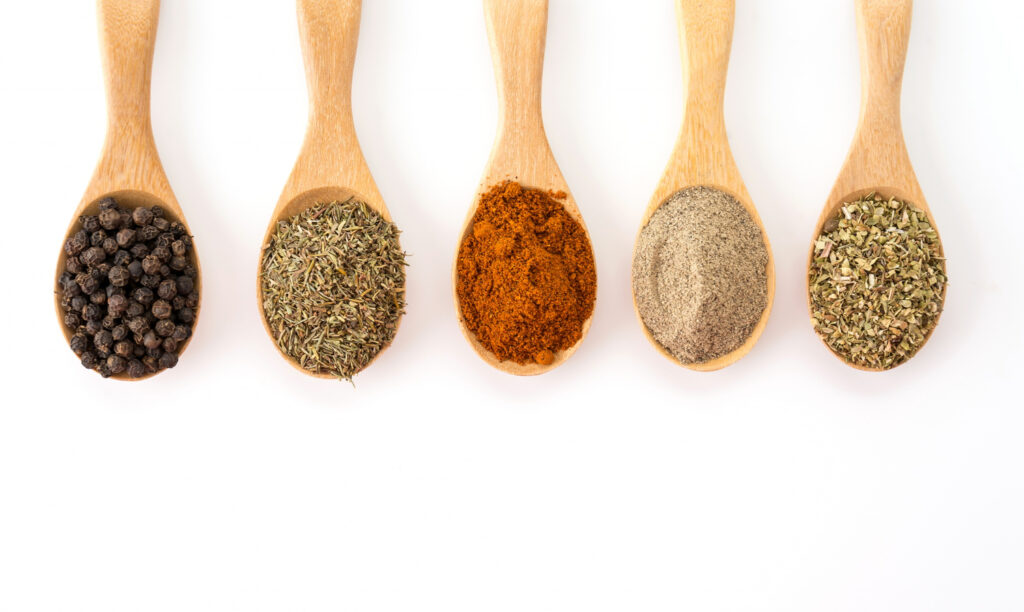Food trends: Few things you should know about herbs and spices
Many of us are looking for ways to easily incorporate health-promoting nutrients into our diets. Sprinkling herbs and spices may be the easiest step yet. Turmeric, ginger, garlic, and mint are some of the best herbs and spices with health-promoting properties. They have become a major food trend for people looking for more natural remedies.
Here are some things you should know about these four herbs and spices. Along with tips on how to incorporate them into your daily diet:
Turmeric:
Turmeric is an orange spice that has been used in India for thousands of years as a common addition to curries and its medicinal benefits for joint pain and fatigue. It is still used today for these and other benefits. Such as reducing skin irritation and plaque buildup on teeth. Preliminary studies are looking at one of the components of turmeric, curcumin, for Alzheimer’s disease, rheumatoid arthritis, and prostate and colon cancer. Ask your healthcare provider if you are considering adding turmeric to your diet.
Simple ways to include turmeric in your diet:
- Sprinkle turmeric powder over scrambled eggs, rice or soup.
- Add fresh vegetables to 1 tbsp. turmeric powder, 1 tbsp. of olive oil and 2 tbsp. of water.
- Blend ¼ tsp. of turmeric powder or raw turmeric into a smoothie.
- Steep 2 tsp. of freshly grated turmeric in hot water and drink as tea.
Ginger:
Ginger is rich in nutrients. Like turmeric, its constituent gingerol has anti-inflammatory and antioxidant properties. Some evidence has indicated that ginger may help relieve nausea during pregnancy. When combined with anti-nausea medications, may also help control these symptoms during chemotherapy. However, research is still needed to determine the effectiveness of ginger for nausea, motion sickness, or rheumatoid arthritis and osteoarthritis after surgery. If you are considering using ginger to relieve nausea during pregnancy, you may want to consult your health care provider first.
Simple ways to include ginger in your diet:
- Add 1 tbsp. of fresh ginger root to a smoothie or juice.
- Throw 1 tbsp. of fresh or dried ginger in your stir-fry.
- To drink as an infusion, peel and steep a 2-inch piece of fresh ginger root in boiling water with 1 slice of lemon.
Garlic:
Historically, garlic has been used medicinally around the world to help fight colds, high blood pressure, and other ailments. However, there is a lack of evidence as to whether it can affect cholesterol or blood pressure. There is not enough scientific research to say whether it helps cure a cold. Some studies have indicated that some people who eat a lot of garlic (and not as a dietary supplement) may be less likely to develop stomach and colon cancer.
Simple ways to include garlic in your diet:
- Add 3 minced garlic cloves when cooking vegetables like broccoli, carrots or spinach.
- Add a few cloves of fresh garlic to soups, salsas or pasta sauces.
- Sprinkle chopped or ground garlic on buttered toast.
Mint:
The leaves and essential oil extracted from peppermint have been used for medicinal purposes for thousands of years. The limited research conducted on peppermint oil has shown a promising indication to help improve the symptoms of irritable bowel syndrome (IBS). Topically, diluted peppermint oil may help relieve some tension headaches when rubbed on your temples – however, evidence for this practice is limited. A small sample of data has also been found to help improve focus.
Simple ways to include mint in your diet:
- Toss 3 or 4 chopped mint leaves into salsas or fresh fruit salads.
- Mix 1 tbsp. Finely chopped mint leaves with Greek yoghurt and berries.
- Add 15 mint leaves to boiling water to drink like herbal tea.

